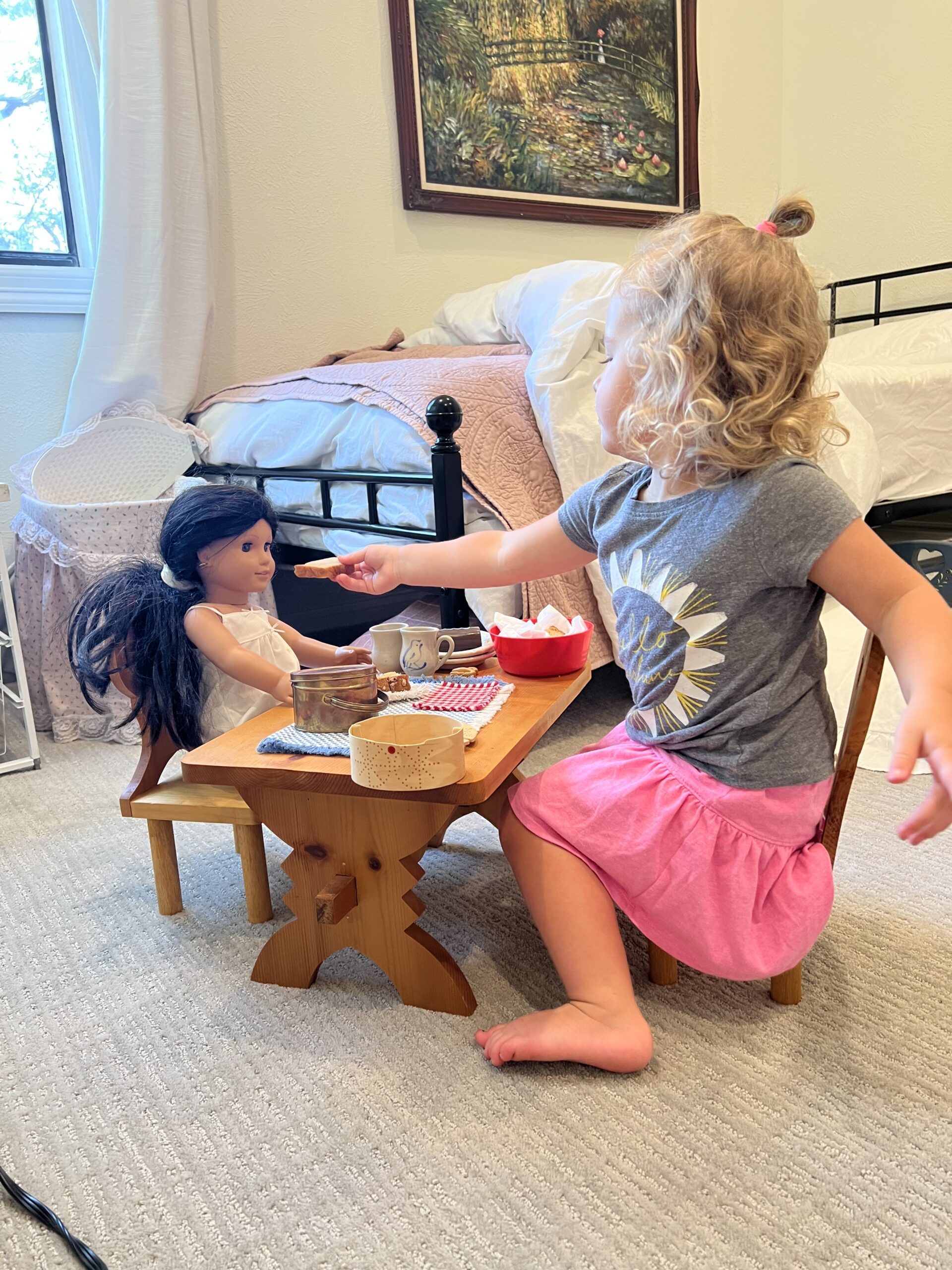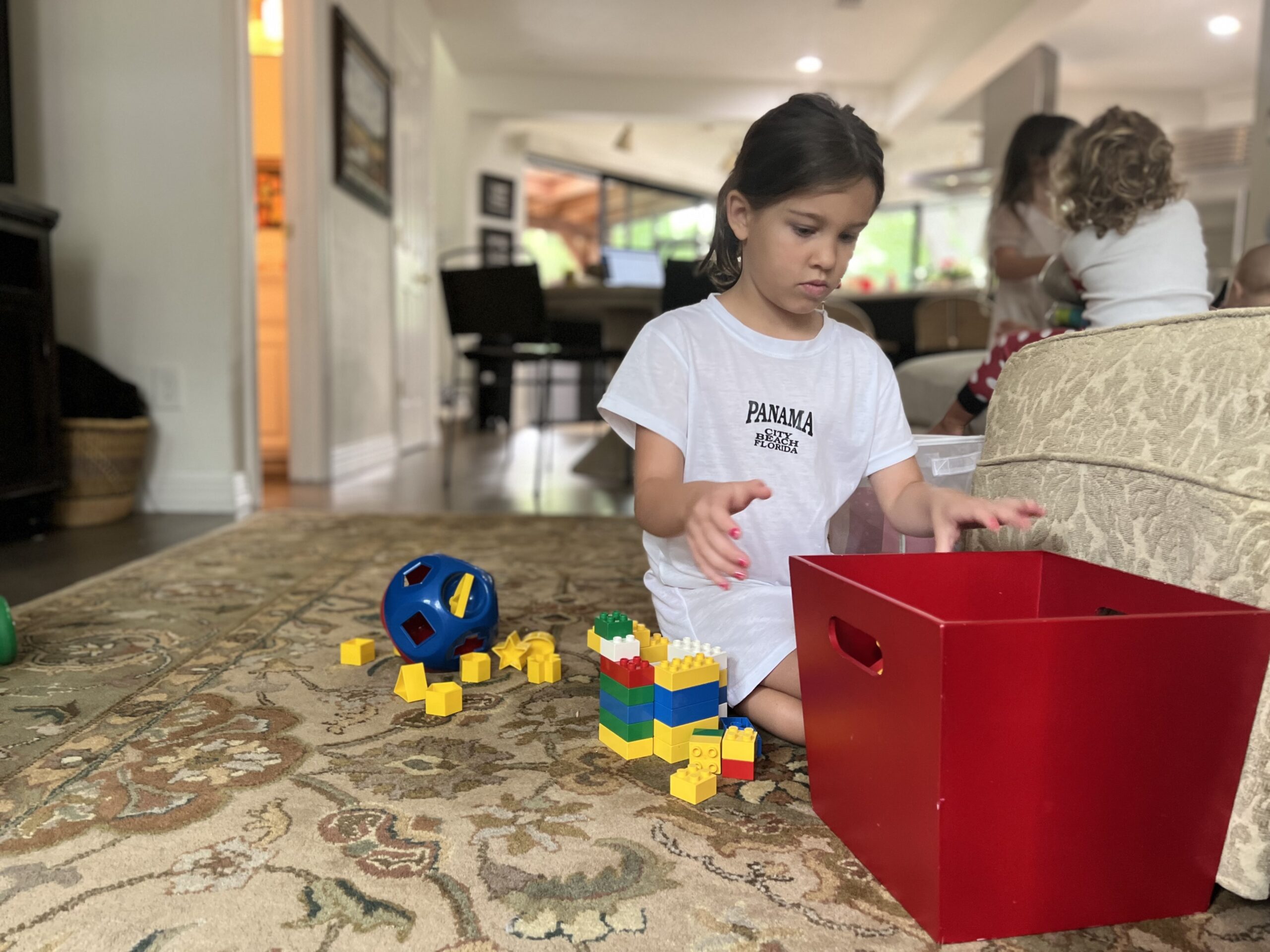I have a distinct memory of sitting in the backyard of the house I grew up in, asking my mom to play Barbie Dolls with me. “Sweetie,” she said, “Mommy will dress the Barbies and brush their hair, how about you make them talk?” I remember thinking, as a five-year-old, that this was so odd. How could my mom not want to engage 24/7 in the imaginative play that my sister, my friends, and I delighted in and couldn’t get enough of? But now? I get it.
I absolutely adore overhearing my five, seven, and even two-year old use their imaginations for pretend play. My five-year-old has especially dramatic voices she uses for her dolls and my seven-year-old can set up the loveliest “homes” and create magical play set ups for her sisters to enjoy. My two-year-old loves to copy her big sisters. I myself have the best memories of playing for hours upon hours lost in an imaginative land. Now, however, it feels like a great mental feat to play dolls or any kind of imaginative games with my girls. I can feel my brain numbing as I make one doll ask the other for a cookie. I will happily, eagerly do any kind of craft using paint and glue and glitter. I’ll play board games and take them on every kind of outing and let them help me bake cookies and read all the picture books. But do I have to engage my once active and now tired imagination? I have a similar feeling when my girls ask me to tell them a story. Often this is first thing in the morning and I have to tell them, “Mommy’s brain needs to wake up a little more first.”
So, what’s my solution?
Here in lies one of my favorite mom hacks: the timer. When one of my daughters wants me to participate in pretend play of some sort, I set a timer for ten or fifteen minutes. I give it my all, making up names and storylines and engaging conversation. Knowing that there is a set time for me to do this helps the mental load immensely. When the timer goes off, we are done for that play session and we both feel content with our time together.
Keep your phone across the room or in another room altogether.
The point of this time is focused play with your child. So, for me, I don’t want to be checking my phone while I play. I want to be fully present and in the moment. This goes a long way with my kiddos!
Put pretend play on my schedule or to-do list.
Doing this reframes the experience in my mind if I schedule it or add pretend play to my to-do list. I feel like I am accomplishing something and can check it off. Scheduling pretend play also helps diffuse the mom guilt I experience when I say, “Not right now.” If I’ve already been regularly playing with my kids in this way, I can say “no” when I need to. Of course their are spur of the moment times when I join in on their imaginative play, but scheduling it ensures I’m regularly participating.
A little goes a long way.
I’ve noticed with my oldest daughter that even a little pretend play goes a long way. Her favorite thing is to ask for “special time”, meaning a time for us to play together without her sisters. This is best accomplished during our afternoon rest time. Again, even ten or fifteen minutes means a lot to her. That one-on-one time fills both of our tanks.
Remember why this is important.
The significance of enduring the monotony of pretend play is that I am creating a connection with my child that will feel meaningful to her. Having this vision fuels me for when I’d rather be doing something else because connection is one of my highest priorities as a mom. And of course, I inevitably often end up having a lot of fun myself, seeing my child use her imagination and experiencing her delight in special time with me. 




















